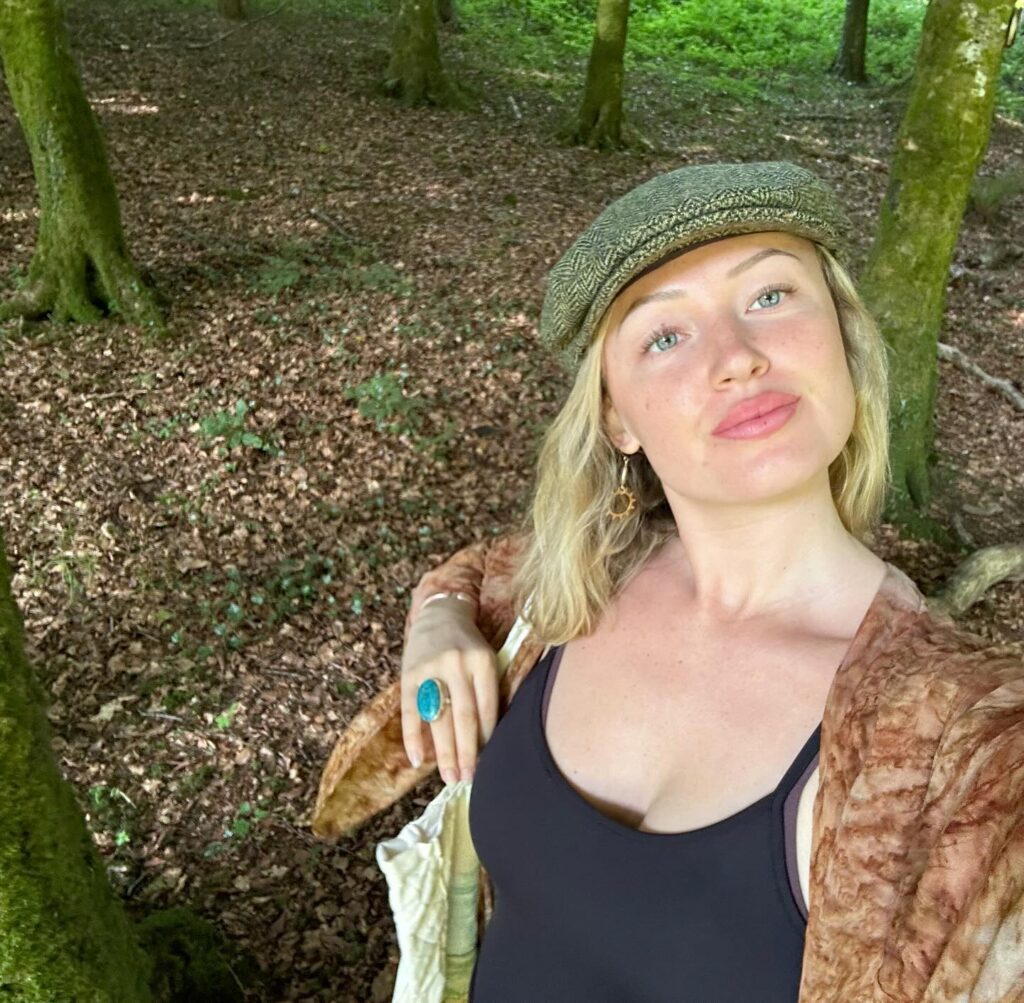Holistic Counseling

Holistic Counseling
What is Holistic Counseling?
Holistic Counseling is a form of therapy that embraces the interconnectedness of your mental, emotional, physical, and spiritual well-being. Rather than solely targeting isolated symptoms, Holistic Counseling views you as a whole person and addresses the underlying factors influencing your overall health. It blends traditional talk therapy with mindfulness practices, body-based techniques, and self-discovery exercises to promote healing, balance, and personal growth.
How Can Holistic Counseling Help You?
Holistic Counseling offers support and guidance in numerous ways:
- Understanding the Mind-Body Connection: Holistic Counseling emphasizes the link between your thoughts, emotions, and physical experiences, helping you understand how they influence one another.
- Self-Discovery and Empowerment: Through Holistic Counseling, you gain deeper self-awareness, uncover strengths, release limiting beliefs, and cultivate greater self-compassion.
- Stress Management and Coping Skills: Develop a toolkit of healthy coping mechanisms, including mindfulness, self-care practices, and strategies to navigate challenges for enhanced resilience.
- Addressing Emotional Distress: Holistic Counseling provides a safe space for processing difficult emotions like anxiety, depression, grief, and trauma, supporting you towards emotional healing and greater inner peace.
- Exploring Spirituality: If desired, Holistic Counseling can offer opportunities to explore spirituality and your sense of meaning and purpose for a greater sense of connection.
- Holistic Approach: Through Holistic Counseling, you receive a therapeutic approach that honors the interconnectedness of all aspects of your life, leading to a more comprehensive healing experience.
What is Holistic Counseling Good For?
Individuals seek Holistic Counseling for a wide range of challenges:
- Stress, Anxiety, and Depression: Holistic Counseling can teach effective stress management skills, provide tools for emotional regulation, and support you in addressing the root causes of anxiety or depression. Therapists trained in this model may also utilize mindfulness exercises, relaxation techniques, or somatic techniques (like breathwork) to enhance mental and emotional well-being.
- Trauma Recovery: The holistic approach is often useful when working with trauma, as it can help individuals reconnect with their bodies and find empowering ways to release stored trauma energy, allowing for greater emotional healing. Therapists with specialized training in somatic-based therapies or trauma-informed approaches are well-suited for this type of Holistic Counseling.
- Personal Growth and Self-Discovery: If you find yourself desiring deeper self-understanding, want to break through barriers, or foster personal growth, Holistic Counseling can be a valuable catalyst. Therapists practicing this form of counseling can guide you through self-inquiry exercises, exploration of values, and cultivate self-acceptance to support you in becoming your most authentic self.
- Chronic Illness or Pain Management: Holistic Counseling can play a supportive role alongside traditional medical treatment for chronic illness or pain. Therapists trained in this approach can assist with mind-body techniques for pain management, exploring the emotional impact of chronic conditions, and developing coping strategies for living well despite health challenges.
- Life Transitions and Challenges: Navigating major life changes or challenges can feel complex and overwhelming. Holistic Counseling can provide support as you grapple with difficult decisions, process complex emotions, and develop strategies for adapting to life’s shifting landscape.
- Seeking Holistic Well-Being: Holistic Counseling aligns with the desire for a whole-person approach to well-being and can support those seeking balance and greater fulfillment in all dimensions of life.
Benefits of Holistic Counseling
Holistic Counseling has the potential for numerous benefits, including:
- Improved Overall Well-being: By addressing multiple facets of your being, you create the foundation for a healthier, more balanced state of well-being.
- Reduced Stress and Enhanced Resilience: Holistic Counseling teaches effective stress management and coping skills to increase your capacity for navigating life’s inevitable ups and downs.
- Greater Self-Awareness: Through guided reflection and introspection, you gain valuable insights into your thoughts, emotions, and behavioral patterns, leading to greater self-understanding.
- Emotional Freedom: Holistic Counseling helps to uncover and process difficult emotions, fostering emotional healing and greater freedom to live authentically.
- Mind-Body Integration: By exploring the relationship between your mind and body, you can cultivate tools to manage physical symptoms and deepen your sense of embodiment.
What to Expect from Holistic Counseling with a Practitioner
Here’s a general overview of a Holistic Counseling experience:
- Initial Assessment: Your therapist explores your current concerns, overall health history, and your goals for therapy.
- Therapeutic Relationship: Holistic Counseling prioritizes a safe, collaborative therapeutic alliance where you feel comfortable and supported.
- Tailored Approach: Holistic Counseling sessions are tailored to your unique needs and might incorporate talking therapy, mind-body techniques, guided visualizations, or other approaches for optimal benefit.
- Self-Exploration: The therapist facilitates self-discovery exercises to uncover insights about patterns, values, and limiting beliefs.
- Skill-Building: You will learn coping skills , mindfulness techniques, strategies for emotional regulation, boundary setting, and other tools to empower you in managing your life.
Similar Modalities to Holistic Counseling
Other therapeutic modalities share similarities with Holistic Counseling:
- Mind-Body Therapies: Approaches focusing on the mind-body connection, such as somatic therapies or mindfulness-based interventions, often overlap with principles of Holistic Counseling.
- Integrative Therapy: This approach blends various therapeutic techniques based on individual needs and goals, aligning with the personalized nature of Holistic Counseling.
- Humanistic or Existential Therapy: These therapies focus on the whole person, exploring meaning and purpose, and fostering self-acceptance, which resonate with Holistic Counseling principles.
Final Thoughts
Holistic Counseling offers a unique and empowering approach for those seeking healing and growth across multiple dimensions of their lives. When choosing a Holistic Counseling therapist, it’s crucial to find someone with relevant training, who understands your needs, and with whom you feel a good connection
Scientific References
While research specifically on Holistic Counseling may be less extensive, here are relevant resources supporting elements often included:
- Grossman, P., Niemann, L., Schmidt, S., & Walach, H. (2004). Mindfulness-based stress reduction and health benefits: A meta-analysis. Journal of psychosomatic research, 57(1), 35-43.
- Richards, K. C., Campenni, C. E., & Muse-Burke, J. L. (2010). Self-care and well-being in mental health professionals: The mediating effects of self-awareness and self-compassion. Journal of Mental Health Counseling, 32(3), 247.
Recommended Reading
- Germer, C. K. (2009). The mindful path to self-compassion: Freeing yourself from destructive thoughts and emotions. Guilford Press.
- Levine, P. A. (1997). Waking the tiger: Healing trauma. North Atlantic Books.
- Van der Kolk, B. A. (2014). The body keeps the score: Brain, mind, and body in the healing of trauma. New York, NY: Viking.
FAQ: Holistic Counseling
What qualifications should I look for in a Holistic Counseling therapist?
Seek a licensed therapist (e.g., Licensed Professional Counselor (LPC), Licensed Clinical Social Worker (LCSW)) with experience in Holistic Counseling approaches. Also, explore certifications in specific mind-body techniques (yoga, mindfulness, somatic therapies). Ultimately, finding a therapist you trust and connect with is essential.
How is Holistic Counseling different from traditional talk therapy?
While talk therapy is fundamental to both, Holistic Counseling often goes beyond verbal processing by incorporating mind-body techniques, guided self-exploration activities, and a greater focus on the interconnectedness of all aspects of your well-being.
Does Holistic Counseling replace allopathic medicine?
No. Holistic Counseling can complement but does not replace medical advice. It’s essential to consult your primary care physician regarding physical health concerns and discuss any alternative therapies with both your doctor and therapist to ensure holistic care.
Can Holistic Counseling help with severe mental health conditions?
Holistic Counseling can be a valuable adjunct to primary treatment for severe conditions like schizophrenia or bipolar disorder. It’s crucial that your counselor collaborates with your psychiatrist or primary mental healthcare provider to ensure integrated care.
How do I find a Holistic Counseling therapist?
Look for therapists with the terms “holistic,” “integrative,” “mind-body” in their profiles.
Related Practitioners
Kim McIntire
The Neurodivergent Healer & Hypnotist
- Carson City, Nevada, United States
- +1 (775) 240-6381
My name is Kim McIntire, and my transformative journey in holistic wellness commenced 22 years ago during my time at… Read More
Ella Ringrose
Awaken Your Inner Power, Align with Your Purpose
- Toronto, Golden Horseshoe, Ontario, Canada
- +1 (555) 555-0000
Ella Ringrose is a spiritual guide dedicated to empowering individuals on their spiritual journeys. Through her YouTube channel, she shares… Read More
Ali Campbell
Neuro Linguistic Programming Expert
- Los Angeles, Los Angeles County, California, United States
- +44 (2) 555-5555
As information is rapidly changing, we encourage you to continue to stay informed. Please visit our Coronavirus Resource Center, Healthgrades… Read More























